Introduction
Shaking beef, or “bò lúc lắc” in Vietnamese, is a beloved dish that epitomizes the harmony of flavors and textures in Vietnamese cuisine. This dish features tender cubes of beef sautéed with onions and bell peppers, often served over a bed of watercress or alongside rice. The name “shaking beef” comes from the cooking technique where the beef is vigorously shaken in the pan to ensure even cooking and caramelization. This comprehensive guide will delve into the origins, ingredients, preparation methods, variations, cultural significance, and the nutritional benefits of shaking beef.
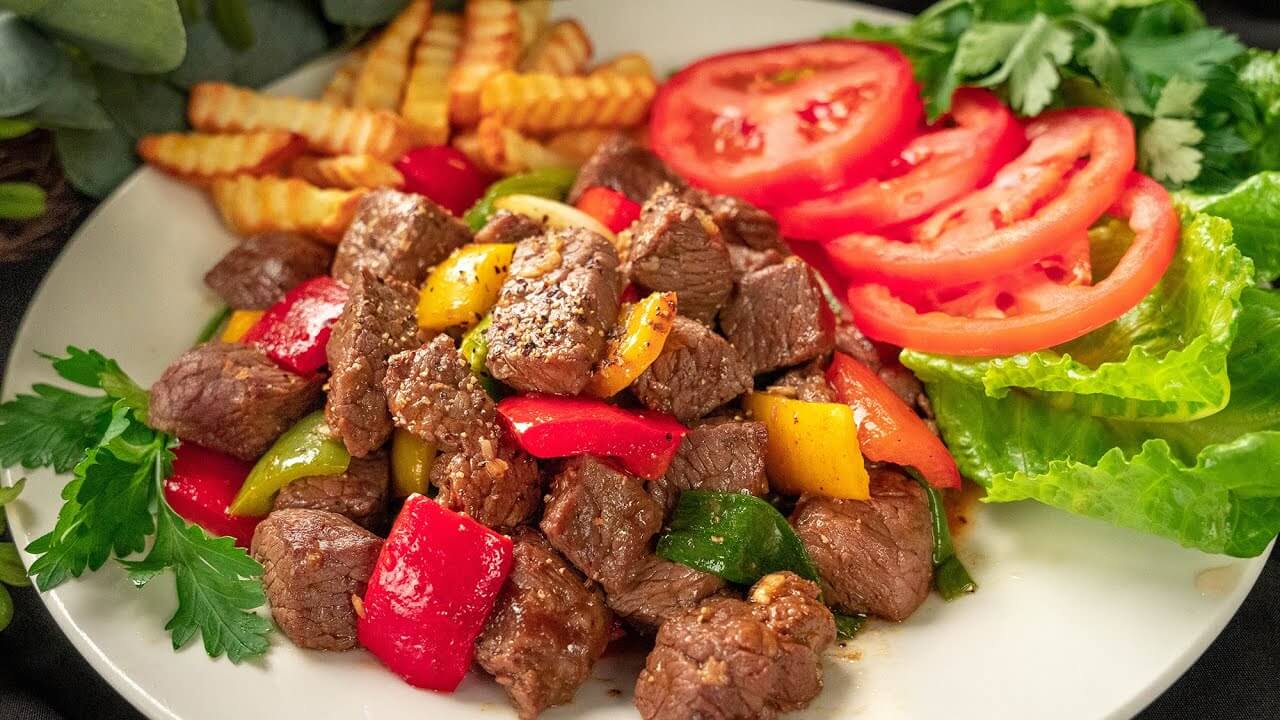
The Origins of Shaking Beef
Shaking beef has its roots in French colonial Vietnam, where the influence of French culinary techniques and ingredients melded with traditional Vietnamese flavors. The dish became popular for its simplicity, quick preparation, and the use of high-quality beef, which was a luxury ingredient at the time. Over the years, “bò lúc lắc” has evolved into a staple in Vietnamese households and restaurants, celebrated for its succulent texture and savory taste.
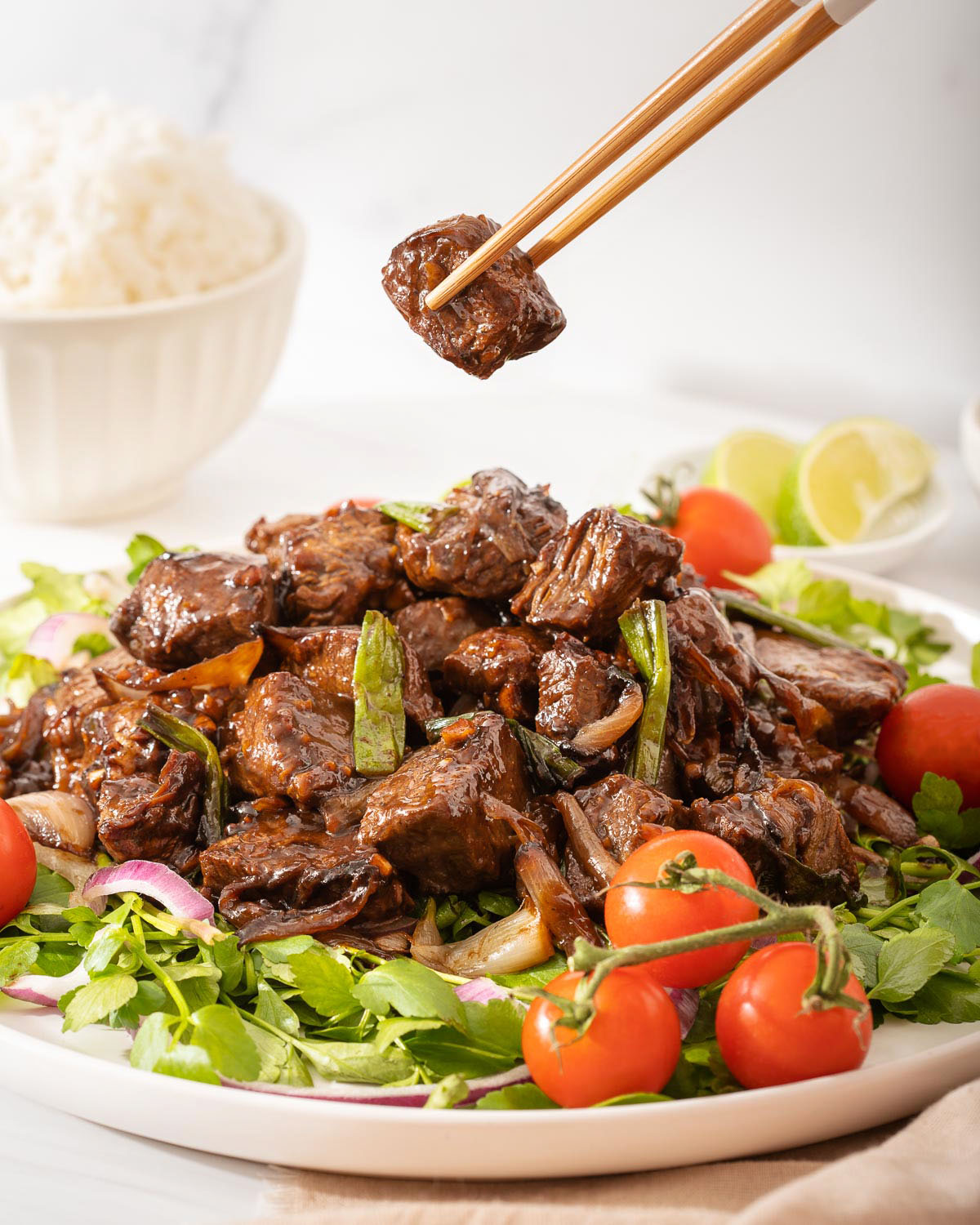
The Ingredients
The beauty of shaking beef lies in its simplicity and the use of fresh, high-quality ingredients. Here’s what you’ll need to prepare this dish:
1. Beef: Tender cuts like sirloin, ribeye, or tenderloin are ideal for shaking beef. These cuts offer the right balance of tenderness and flavor.
2. Marinade: The beef is typically marinated in a mixture of soy sauce, oyster sauce, fish sauce, sugar, and black pepper. This blend of ingredients infuses the meat with a savory umami flavor.
3. Aromatics: Garlic and shallots are essential for adding depth to the dish.
4. Vegetables: Bell peppers and onions are commonly used, adding sweetness and crunch.
5. Greens: Watercress or arugula are often used as a bed for the beef, providing a fresh, peppery contrast to the rich meat.
6. Accompaniments: Steamed jasmine rice or a French baguette are traditional accompaniments.
Preparation Method
Creating the perfect shaking beef requires attention to detail and a few key steps. Here’s a comprehensive guide to preparing this exquisite dish:
1. Preparing the Beef: Start by cutting the beef into 1-inch cubes. Place the beef in a bowl and add soy sauce, oyster sauce, fish sauce, sugar, and black pepper. Mix well to ensure the beef is evenly coated. Let it marinate for at least 30 minutes, allowing the flavors to penetrate the meat.
2.Cooking the Aromatics and Vegetables: Heat a large skillet or wok over medium-high heat. Add a bit of oil, then add the minced garlic and shallots. Sauté until fragrant, about 1-2 minutes. Add the bell peppers and onions, and cook until they begin to soften, about 3-4 minutes. Remove the vegetables from the pan and set aside.
3. Cooking the Beef: In the same pan, add a bit more oil if needed, and increase the heat to high. Add the marinated beef, spreading it out in a single layer. Let it sear for about 1-2 minutes without stirring, allowing it to develop a good caramelized crust. Then, start shaking the pan or using tongs to flip the beef, ensuring all sides are evenly seared and cooked to your desired doneness. This process should take about 4-5 minutes for medium-rare beef.
4. Combining and Serving: Return the cooked vegetables to the pan and toss them with the beef for about a minute, allowing the flavors to meld together. Remove from heat. Arrange a bed of watercress or arugula on a serving platter, then spoon the shaking beef and vegetables on top. Serve immediately with steamed jasmine rice or a crusty French baguette.
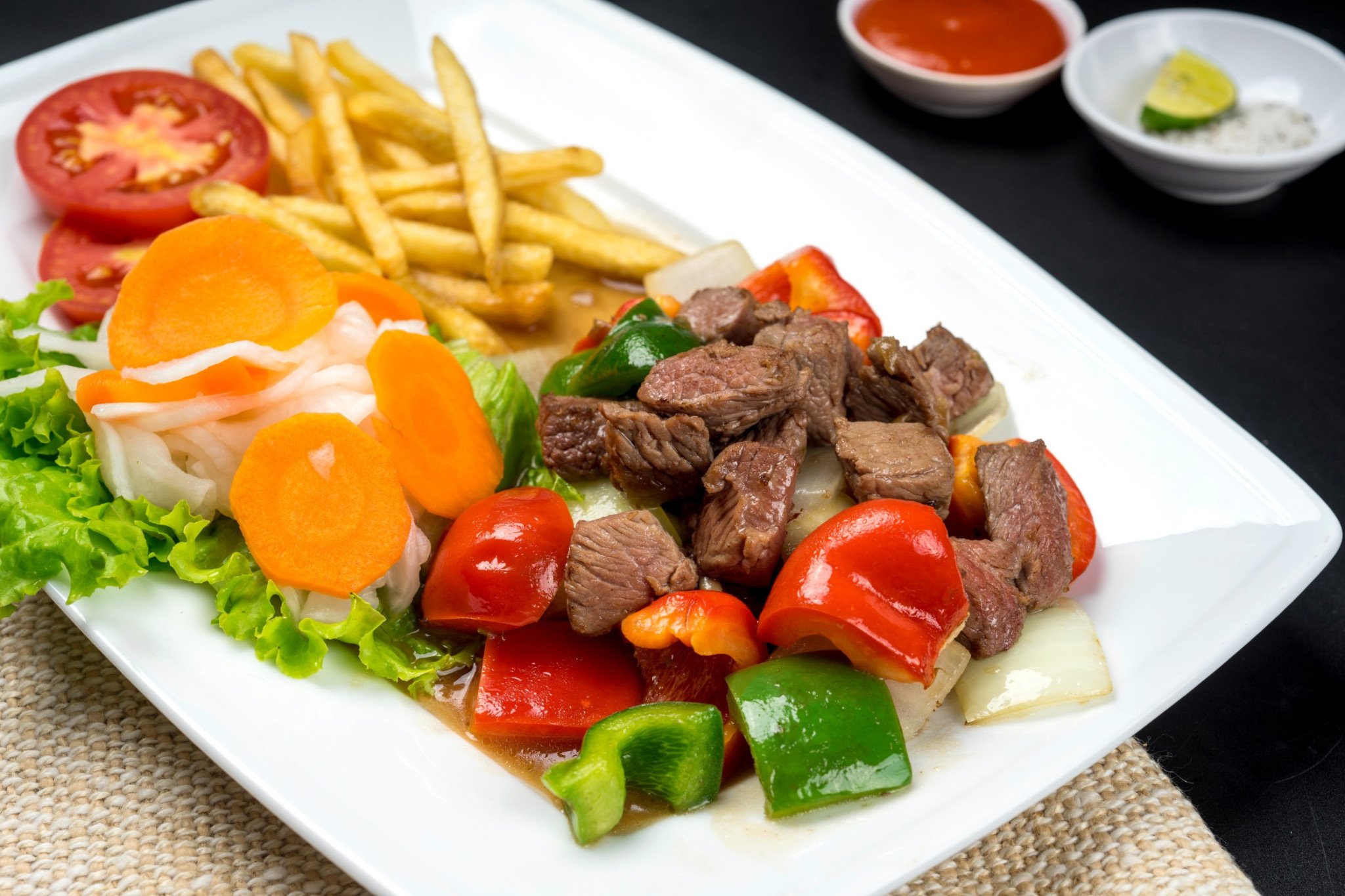
Cultural Significance
Shaking beef holds a special place in Vietnamese culture and cuisine. It represents the fusion of French and Vietnamese culinary traditions and is often enjoyed during family gatherings, celebrations, and special occasions. The dish’s straightforward preparation and rich flavors make it a favorite among home cooks and professional chefs alike.
In Vietnamese restaurants, “bò lúc lắc” is a popular menu item, often presented with a touch of elegance to highlight its status as a classic dish. It is also a testament to the Vietnamese way of transforming simple ingredients into something extraordinary through careful cooking techniques and flavor balancing.
Nutritional Benefits
Shaking beef is not only delicious but also offers several nutritional benefits. Here are some key points:
1. Protein: Beef is an excellent source of high-quality protein, essential for muscle growth and repair, as well as overall body function.
2. Vitamins and Minerals: Beef provides important vitamins and minerals, including iron, zinc, and B vitamins. Iron is crucial for oxygen transport in the blood, zinc supports immune function, and B vitamins are essential for energy production and brain health.
3. Vegetables: The bell peppers and onions add dietary fiber, vitamins A and C, and antioxidants, contributing to a well-rounded and nutritious meal.
4. Healthy Greens: Watercress or arugula offer additional vitamins, minerals, and phytonutrients, enhancing the nutritional profile of the dish.
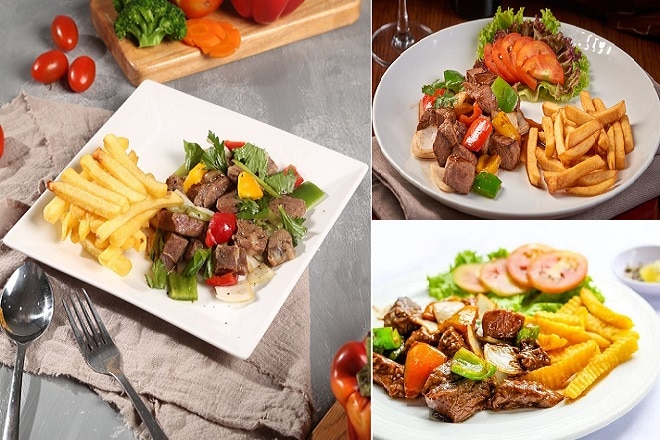
Variations of Shaking Beef
While the traditional shaking beef recipe is cherished, there are several regional variations and personal twists that you can explore:
1. Spicy Shaking Beef: Add sliced chilies or a splash of chili oil to the marinade for a spicy kick.
2. Lemongrass Shaking Beef: Incorporate finely chopped lemongrass into the marinade for a fragrant, citrusy note.
3. Shaking Beef Salad: Serve the beef and vegetables over a fresh salad of mixed greens, cucumbers, and tomatoes, dressed with a light vinaigrette.
4. Fusion Flavors: Experiment with different marinades, such as adding hoisin sauce, sesame oil, or even a touch of balsamic vinegar for a unique twist.
Tips for Perfect Shaking Beef
1. Choosing the Right Beef: Select high-quality beef cuts that are tender and well-marbled. Sirloin, ribeye, or tenderloin are excellent choices.
2. Marinating: Allow enough time for the marinade to penetrate the meat. Marinating for at least 30 minutes, or even overnight, will yield the best results.
3. High Heat Cooking: Use high heat to sear the beef quickly, ensuring a caramelized crust while keeping the inside tender and juicy.
4. Shaking Technique: The shaking technique ensures even cooking and prevents the meat from sticking to the pan. If you’re not comfortable shaking the pan, use tongs to flip the beef cubes.
5. Resting the Meat: Let the beef rest for a few minutes after cooking to allow the juices to redistribute, resulting in a more flavorful and tender bite.
6. Balancing Flavors: Taste and adjust the seasoning as needed. The dish should have a balanced savory, sweet, and slightly tangy flavor profile.

Pairing Suggestions
Shaking beef pairs beautifully with a variety of side dishes and beverages. Here are some suggestions to enhance your dining experience:
1. Side Dishes: Steamed jasmine rice, garlic fried rice, or a fresh baguette are excellent accompaniments. A side of pickled vegetables or a light salad can add a refreshing contrast.
2. Sauces: Serve with a dipping sauce made from a mix of soy sauce, lime juice, garlic, and chilies for an extra burst of flavor.
3. Beverages: A light beer, such as a Vietnamese lager, pairs well with the rich flavors of shaking beef. For a non-alcoholic option, consider a chilled jasmine tea or a sparkling water with a splash of lime.
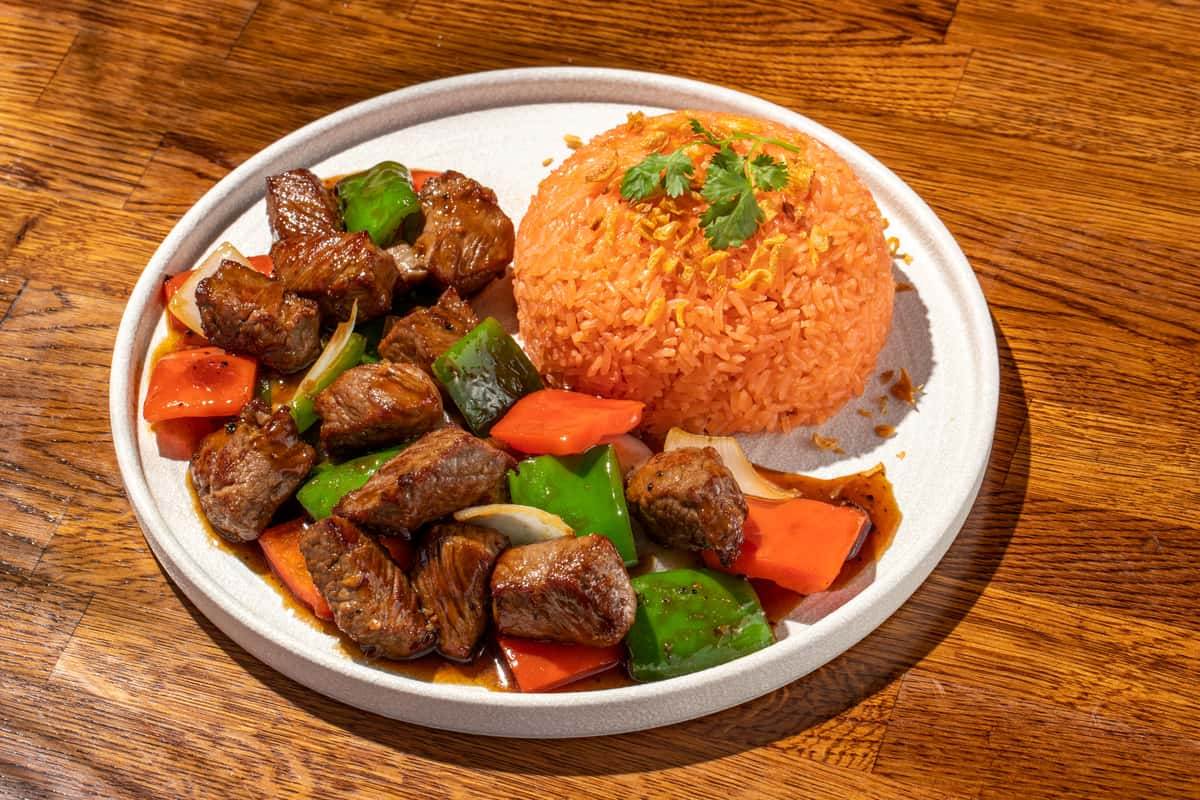
Conclusion
Shaking beef, or “bò lúc lắc,” is a culinary gem that showcases the richness and diversity of Vietnamese cuisine. Its origins in the fusion of French and Vietnamese culinary traditions, combined with its simple yet flavorful preparation, make it a beloved dish worldwide. Whether you’re a seasoned chef or a home cook looking to explore new flavors, shaking beef offers a delightful journey into the heart of Vietnamese cooking.
By following the steps and tips provided in this guide, you can create a memorable shaking beef dish that will impress your family and friends. Enjoy this exquisite dish with loved ones and create unforgettable culinary experiences.









